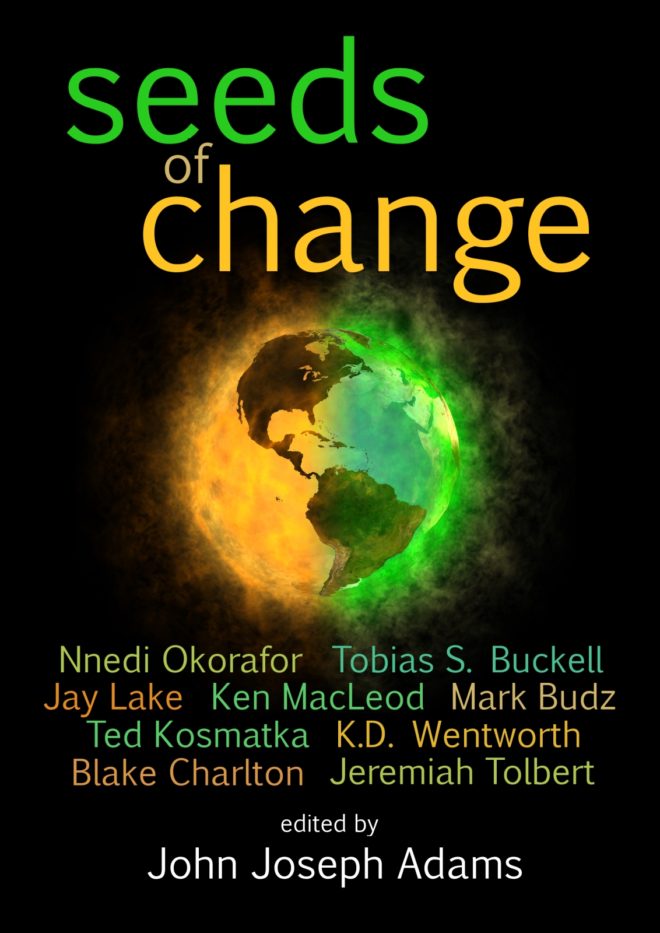Seeds of Change
edited by John Joseph Adams
Imagine the moment when the present ends, and the future begins–when the world we knew is no more and a brave new world is thrust upon us. Gathering stories by nine of today’s most incisive minds, Seeds of Change confronts the pivotal issues facing our society today: racism, global warming, peak oil, technological advancement, and political revolution. Many serve as a call to action. How will you change with the future?
These nine stories sow seeds of change across familiar and foreign territory, from our own backyards to the Niger Delta to worlds not yet discovered. All explore the notion that change will come. Will you be ready?
Praise for Seeds of Change
This thought-provoking anthology of nine original stories posits near-future paradigm shifts in everything from race relations […] to the morality of uploaded consciousness […] Accurately reflects many of today’s most pressing political and social issues, and will give readers plenty to think about and argue over.
—Publishers Weekly
Isaac Asimov said science fiction is the branch of literature that deals with the responses of human beings to changes in science and technology. His definition put humans in a reactive role, but we can also be proactive, actively making the future what we want […] and that’s what this anthology of provocative and disturbing stories challenges us to do.
—Robert J. Sawyer, Hugo Award-winning author of Hominids
The theme of Seeds of Change, an anthology of original fiction edited by John Joseph Adams, is paradigm shifts. Specifically, Adams asked the writers to write stories about technological, scientific, political or cultural change. Not only did each writer succeed at that goal, but most of them managed to provide stories that were entertaining and thought-provoking as well. [4 out of 5 stars]
—SF Signal
This anthology once again proves that Adams is an editor of high skill. […] Seeds of Change continues to exemplify Adams ability to pick short stories of distinction. These nine stories […] are thought provoking without being didactic, asking the reader to think deeply about issues of today through the stories of the future. Conclusions are not drawn by these authors, avoiding the giving of answers. […] This is the sort of writing the speculative fiction the genre was meant to produce. Readers should be pleased with the results of the contributors’ and editor’s efforts.
—Grasping for the Wind



